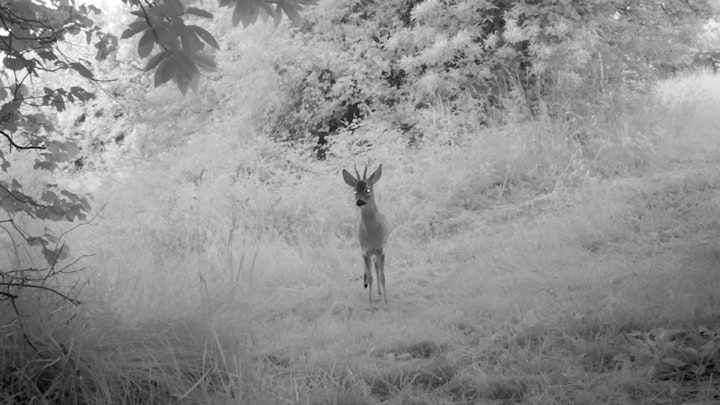So Long and Thanks for All the Fish
research
Animot. The other philosophy
issue thirteen / 2023 / curated by Alice Benessia
"So Long, and Thanks for All the Fish". With this message of goodbye, dolphins leave the planet for new worlds, ascending all at once from the sea to the cosmos. Earth is about to be destroyed. They have relentlessly attempted to warn humans of the impending danger, only to realize that they were not understood. Very arrogant and not as brilliant, the human species has interpreted as a circus performance what for the dolphins was the last earnest farewell. With one of the most surreal images of the science fiction literature from the ‘80s, British writer and humorist Douglas Adams evokes the ridiculous inadequacy of our species to relate with otherness – in this case another animal species – to the point of not realizing its own brutal effrontery and the imminence of a collective disaster.
Four decades later, understanding the other is all the more crucial; not only the other (human and nonhuman) animal, but also vegetal, fungus, lichen, microorganism, mineral, rock; and also river, forest, ocean, mountain; the constant flow of organic and inorganic matter that surrounds, inhabits and constitutes us. In the voices of a new and much needed relational research – beyond the divide between science and art – this issue explores how we can make silence and pay attention. How we can open a crack in the shells of our being, through which we can join the stories that the other has been telling us and with us, for thousands of millennia.
Embarking on this move means changing our most recent posture as humans, letting go of the Cartesian illusion of control and command over all others, and learning (again) how to collaborate, in service of life as a whole.
The path is always immersed in a bundle of obstacles and compromises, failures and contradictions. They indicate the moving boundaries of the territory we choose to inhabit together, and the consequences we are ready to bear.
As we begin to make silence and listen, we quickly realize that the number of humans and nonhumans who are already embodying this different posture, consciously immersed in the web of life and already collaborating, is remarkably high.
This contribution is then is only adding a tiny seed into a forest of hope.
I would like to thank Gabi Scardi and Valentina Avanzini for inviting me as editor for this issue. Every invitation is a chance to show up for an appointment. In this case, with the possibility to nourish with new stories a conversation that is at the heart of my research and practice.
My deep gratitude goes then to all the humans and nonhumans who offered their stories, sharing their own experience, wisdom and skills.
I won’t be resuming or reflecting here on what you will read and see, as I would rather leave room for you to join the conversation in an open space.

@ Caretto / Spagna 2012, from the series Questions to the Yamuna river
Contributors (in order of appearance): Cyrilla Mozenter, Monica Gagliano, Gay Bradshaw, David Waltner-Toews, Andrea Caretto and Raffaella Spagna, Tim Ingold, Chiara Sgaramella, Xavier Luján, Alice Benessia
Animot is an academic journal published by Safarà Editore, sponsored by the University of Torino within the Sirius Project
Editors in Chief: Gabi Scardi and Valentina Avanzini





